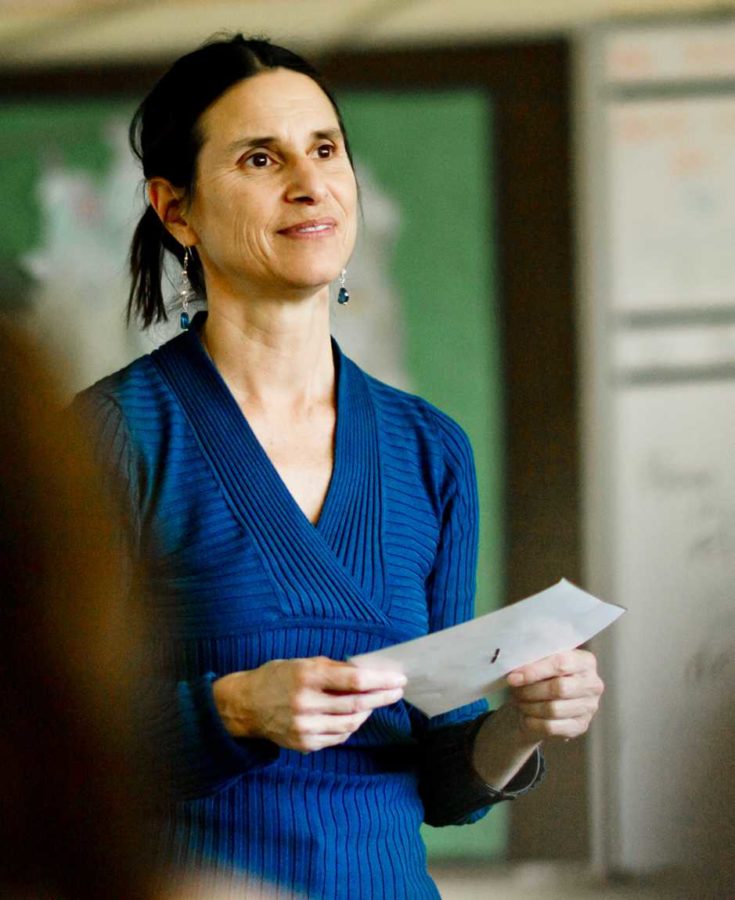Mind the Gap
Ms. Anna Sobreanis, foreign language teacher who has traveled extensively with the Peace Corps, says gap years are useful and character-building.
Masses of high school seniors in the United States and around the world are currently applying for last minute deadlines or have already received letters from their respective universities. As an alternative to the college rush straight from high school, some students are applying for a gap year abroad in foreign countries.
Originally stemming from England and Australia, ‘gap years’, a year taken between high school and college, stand as highly beneficial opportunities to many college-bound students worldwide. Years of promotion has lead to the “year off” rooting itself into the cultures of countries around world. Reaching over two oceans, students in the United States are beginning to acquire a better idea of the available benefits from a gap year. In 2006, figures estimated 24% of accepted applicants deferred their application, and these statistics are becoming more prominent year after year.
Options for gap years are nearly endless, from backpacking to treating patients in remote locations to learning the local lingo and language. In particular, gap programs allow students to tap potential that goes unnoticed if a program isn’t taken. For students hailing from English-speaking countries, one of the most common programs taken is teaching English to children in nations abroad. Besides teaching English, a sizable portion of participants also take extra-curricular courses (that may award transferable college credit) abroad, or simply pay attention for the chance to learn real life lessons and bring them back home.
Since college atmospheres have become one of the most fiercely competitive atmospheres for young scholars in recent decades, using the gap year route has allowed unsure students, like this writer, to rethink their path in life. According to College Explorer, who has a top ten reasons list to take a gap year, taking a gap year could also potentially boost your résumé for any applications, academic or otherwise. Additionally college officers, more than likely, will grant a deferment for your freshman attendance year. Spanish and German teacher Anna Soberanis cautions students to always “ask for deferment” after your acceptance, if interested. Not doing so has left some students stranded for a year as they can neither enter a university nor take their planned year off. If a deferment is made, what students will do remains entirely up to them.
While not opting for a gap year yet, Ami Hayashi, junior, has decided to “teach in China for half a semester” during her senior year at high school. “It is something that doesn’t count against you as it shows more than academics,” Hayashi says.
According to Heidi Kuehn, German teacher, one of Cam High’s former students, Jake Callahan, moved to Munich, Germany in order to study German. To help pay for his way, he works as an au pair. “I’m a huge fan,” of taking a gap year said Ms. Kuehn.
With all these great positives, gap years must be great with no downsides? Well, as with everything, there are a few select drawbacks:
First: You leave the lovely comforts of home. Taking a year off abroad runs the risk of not living with the items we take for granted. Biology teacher Mrs. Shannon Klemann, who spent two years in the Peace Corps (participants must have a college degree), said, “you may be sent somewhere without running water”. That is to say, here you opt to spend will most likely lack running water and electricity.
Second: Students may be set back one year. Not all gap years are created alike in respect to academics. Colleges may award you credit for your year, partial, or even nothing. The counter argument, is the unforgettable experience worth the time away from normal life?
Third: Money, money, money. This ought to be higher on the list for some, but for what you pay, the cost to benefit ration could highly be outweighed. Depending on the program, you may pay nothing or a small amount after scholarships. Online, there are plenty of scholarship opportunities that offer money specifically for gap year programs.
Fourth: Lost momentum. Students already lose 10% of what they learn after a summer vacation. After a year without structured education, the gap year could leave you deficient of basic school subjects during your undergrad work.
Fifth: The temptation of laziness. While abroad, people might feel the year off as an excuse to slack off for a whole year, or longer. If you don’t have a life plan or path to college, the gap year may leave you in a state of despair.
Sixth: NCAA eligibility. According to NCAA regulation, if students do not enroll in college within one year of high school graduation, future players forfeit a year of eligibility to play in any NCAA sports.
Despite all these reasons, should you take a gap year? The answer from any person I have talked to is “yes”. From teachers, to students, to people currently on one now, the experience created is one that won’t come again in a lifetime. Risk comes with reward, and I believe that one step outside this country, before or after college, will benefit you for a lifetime.

















































































![Senior Ditch Day... Relaxation or Truancy? [Video]](https://achsstinger.com/wp-content/uploads/2017/10/IMG_7119-900x599.jpg)
![Heavy Rain Hits Cam High [video]](https://achsstinger.com/wp-content/uploads/2017/02/maxresdefault-900x506.jpg)




Donna Maygren • Jan 21, 2014 at 7:17 am
interesting topic and a great student has written this. Alex is an amazing young student and this is a viable avenue for expression and public sharing. It was also shared in the ACHS Stinger online and ACHS is proud of Alex as well as those he interviewed, teachers who have served in the Peace Corps and advocates for gap year experience.